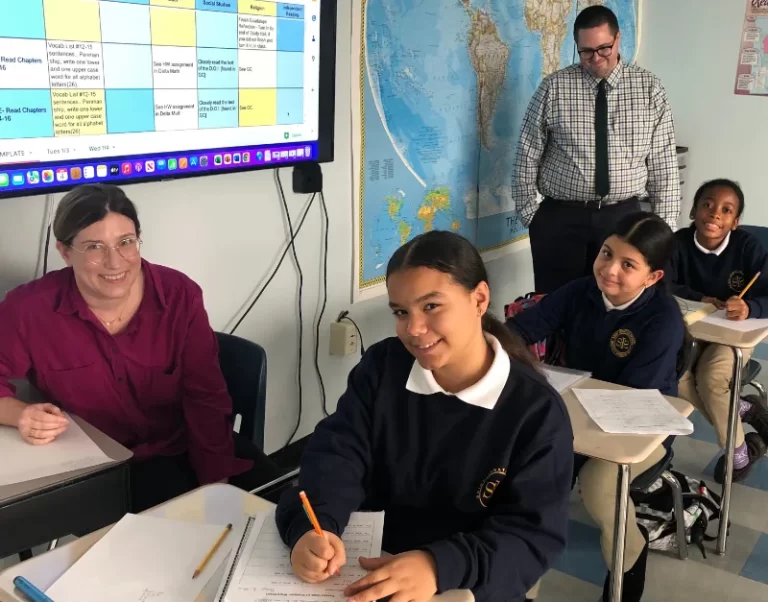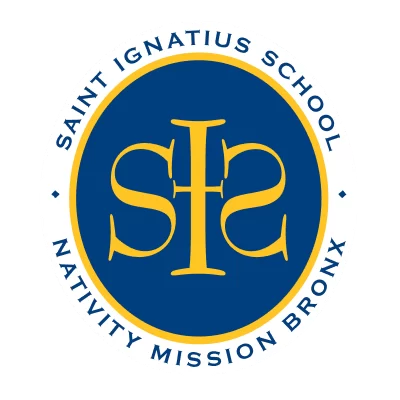Our School

SIS‘s educational philosophy is based on the Jesuit ideal of Cura Personalis (Latin for ‘care for the whole self’) – academic, social, physical, spiritual and emotional development. Our middle school program (grades 6-8) is centered on an educational environment that celebrates and values diversity, allows for small class sizes (a teacher to student ratio of 1:8 vs. 1:26 in the local public school) to ensure personal attention in the classroom, and cares for the mind, body and spirit in an effort to:
In advance of each school year, all staff members are required to participate in an extensive professional development program. The week consists of presentations, readings, and group discussions, including topics such as how to teach students living in poverty, youth disconnection in America, and curriculum and teaching best practices.

Our promise is to inspire, empower and support each student as a unique individual so that they may attain their educational and personal goals.
The SIS curriculum is rigorous, engaging and standards based. The academic program addresses the mastery of skills and competence of developing adolescents in English Language Arts (Reading and Writing), Math, Social Studies, Science, and Religion in preparation for high school and college. Teacher lesson plans and curriculum are aligned with New York State’s Common Core (excluding Religion classes). Our data driven instruction is guided by the results of the NWEA Measure of Academic Progress which is administered twice a year to secure information about student progress.
Language Arts skills are central to the interdisciplinary educational approach at SIS. The following basic components are incorporated into SIS’s ELA program:
Students are explicitly taught how to pre-write, outline, draft, revise and edit through direct instruction. Use and conventions of Standard English are incorporated into all writing assignments. Throughout the year students compose:
Mathematical practices at each grade level include:
SIS’s Social Studies curriculum helps students develop the ability to make informed decisions as American citizens living in a culturally diverse democracy.
The curriculum includes in-depth study in: anthropology, archaeology, economics, geography, history, law, philosophy, political science, psychology, religion/belief systems and sociology.
The focus of the science curriculum at SIS is designed to help students develop scientific literacy and to question, predict, and think “like a scientist”.
An inquiry-based approach to instruction motivates students and provides opportunities to experience what it is like to be true scientists.
The science curriculum includes off-site trips each year, including:
Rooted in the Jesuit Education tradition of cura personalis “care of the whole person”, our aim is to continue to grow a music program of excellence including the study of theory, active participation in music making experiences, and opportunities for performance/practice with professionals.

© 2024 Copyright Nativity Bronx. All rights reserved
